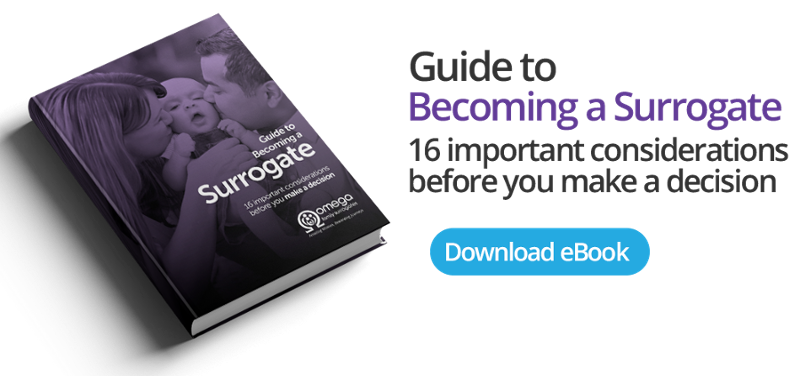Medically Assisted Family Creation : The In vitro fertilization process IVF
Carrying a baby for someone else is a labor of love (pun intended!). When you decide to become a surrogate mother and begin your surrogacy experience you know you will become pregnant through medical intervention, and not the usual way. The IVF Physician will manipulate your natural fertility cycle to trick your body into the pregnancy. This is done with the use of hormones so that your body will accept an embryo even though it was not created by your body.
What role does the IVF physician play in the process?
Once you are pregnant, the pregnancy is monitored by the IVF Physician throughout the first trimester. The IVF Physician will monitor your hormone levels to make certain your body has enough to maintain the pregnancy as well as to make sure that the embryo is growing at a normal rate.
When will I be released to the OB/GYN that will take care of me?
Once you reach 10–12 weeks of gestation you will be released to the OB/GYN. It is at this point that the pregnancy is considered to be “normal”. You will no longer be taking hormones to maintain the pregnancy and your body will be producing the hormones on its own. Most surrogates enjoy the second trimester of pregnancy the most. You may still continue to have regular ultrasounds with a physician, and you are likely to be feeling good. It is also at this point that your Intended Parents begin to relax and understand that the pregnancy is doing well.
Difference 1: The emotions felt at the time of delivery.
For most surrogates, the time of delivery is the greatest difference between past pregnancy and surrogacy. So many surrogates say it is like having a light switch turned off. When you have your own child, you experience the excitement of your family and friends for the birth of the new baby. As a surrogate, you have had the attention of the Intended Parents for nearly a year. Once the baby is born, the Intended Parents’ focus changes and is now on their baby. When you deliver your own baby, family and friends gather to see the baby and congratulate you; as a surrogate, you are readier for life to get back to what it used to be. You may feel overwhelmed with the need to get back to being the “soccer mom”.
Difference 2: Going to the doctor after giving birth, without a baby.
In addition, when you have your own baby, you begin to have pediatrician appointments and everywhere you go people comment on “what a beautiful baby”. As a surrogate, all the doctors’ appointments are gone, except for that final OB/GYN appointment in 6 to 8 weeks. Your clothes don’t quite fit like they used to, people don’t know that you just had a baby (since there is no baby) and you still have the overflow of hormones working their way out. It is important to recognize that you could feel overwhelmed and need to take time for you. You did just deliver a baby, and sometimes you need to remind family and friends of this. We prepare our surrogates for this emotional adjustment, so they know what to expect as they reach the end of their surrogacy.
If you enjoyed this article, subscribe to our newsletter.





